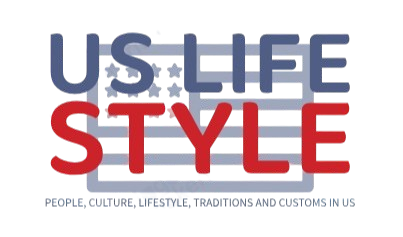In today’s fast-paced business world, honesty and authenticity are not just commendable traits; they are essential for sustainable success. The concept of “stolen valor” traditionally refers to individuals who falsely claim military honors for personal gain. However, the metaphor of “steal valor chimney” has emerged to describe a broader type of deceit—one that accumulates, like soot in a neglected chimney, blocking the flow of trust and eventually leading to severe repercussions. This article explores how deceit, in various forms, impacts business relationships and offers strategies for identifying, preventing, and addressing such unethical behavior.
What Is the “Steal Valor Chimney” Concept?
The term “steal valor chimney” expands on the traditional idea of stolen valor, illustrating how dishonesty builds up over time, eroding the integrity of personal and professional relationships. When individuals fabricate qualifications, experiences, or achievements, they undermine trust, much like how soot buildup clogs a chimney, disrupting its proper function. In business, individuals who engage in deceit risk damaging not only their reputation but also that of their organization.
How Does Stolen Valor Extend to Business Deception?
While “stolen valor” initially pertains to false military claims, the concept is highly relevant in the business world. In business, this form of deception includes exaggerated qualifications, unearned credentials, and fabricated accomplishments. Individuals may lie about their expertise to secure contracts, investments, or promotions, causing harm to their organization and misleading partners, clients, and colleagues.
False claims in business can lead to:
- Damaged Relationships: Misleading claims can sour professional relationships when the truth emerges.
- Financial Losses: Fraudulent claims often result in failed projects or misuse of resources, causing financial harm to organizations.
- Reputational Damage: Once dishonesty is discovered, it reflects poorly not only on the individual but also on their employer or associated business.
Why Is Honesty Crucial for Successful Business Relationships?
Trust is the cornerstone of all successful business relationships. Clients, partners, and employees expect transparency and honesty, which facilitate collaboration, accountability, and loyalty. When trust is breached, it has far-reaching consequences, affecting business performance, relationships, and reputation.
Companies that allow dishonesty to flourish within their ranks jeopardize their own reputation and risk losing credibility with clients, stakeholders, and the broader community. In contrast, businesses that prioritize integrity build a foundation of trust, loyalty, and respect that endures even in challenging times.
What Are the Risks of Supporting Individuals Who Engage in Deceptive Practices?
Organizations that unknowingly or knowingly engage with dishonest individuals face serious risks. These risks include:
- Reputational Damage: In today’s digital world, news spreads quickly. Associations with individuals caught in deceit can lead to public backlash, negative media coverage, and even boycotts.
- Financial Consequences: Dishonest individuals can cause financial losses through failed projects, mismanagement, or termination of partnerships.
- Legal Repercussions: Depending on the nature of the deception, businesses may face lawsuits, fines, or regulatory action if fraud is involved.
When businesses tolerate or overlook deceit, they may lose the trust of clients and partners who value integrity. Furthermore, dishonest behavior within an organization can lower morale and discourage ethical employees.
How Can Businesses Detect and Prevent Deception?
Identifying dishonest behavior before it causes harm requires vigilance and proactive measures. Here are some effective strategies to help businesses detect and prevent deceit:
What Are the Warning Signs of Deception?
- Inconsistent Narratives: Dishonest individuals may have discrepancies in their background or make overly vague claims that lack specific details.
- Exaggerated Achievements: Claims that seem too good to be true, especially without verifiable proof, should be scrutinized.
- Vague Credentials: Watch for general statements without specific details. For example, broad claims about experience or expertise without concrete examples are often warning signs.
How Can Verification Processes Safeguard Against Dishonesty?
Conducting thorough background checks is essential. Verification processes can include:
- Reference Checks: Contact past employers, clients, and colleagues to confirm work history and accomplishments.
- Certification Verification: For professional qualifications, confirm certifications with issuing organizations.
- Military Record Checks: If military service is claimed, validate records through appropriate channels.
By implementing comprehensive verification protocols, businesses can better protect their reputation and ensure they are working with honest, qualified individuals.
Why Is Integrity Critical to Business Growth?
Integrity is not just about following ethical guidelines; it is the foundation of sustainable business growth. Companies that uphold integrity attract like-minded employees, partners, and clients, creating a network of trust and loyalty. This environment not only fosters long-term growth but also enhances the company’s reputation in the market.
How Does Integrity Contribute to Long-Term Success?
Integrity contributes to long-term success by:
- Building Trust: Honesty builds trust, leading to strong relationships with clients, partners, and employees.
- Attracting Talent: Companies known for ethical behavior attract top talent who want to work for reputable organizations.
- Strengthening Brand Loyalty: Clients and customers appreciate transparency and are more likely to support businesses they trust.
What Are the Dangers of Overlooking Ethical Conduct?
Turning a blind eye to unethical behavior can have severe consequences, including whistleblower reports, legal investigations, and media scrutiny. A company that overlooks unethical practices risks losing clients, partners, and top talent who value integrity. Ethical conduct is essential to maintaining trust and sustaining business success.
How Can Businesses Address and Manage Dishonesty?
To effectively manage dishonesty, businesses should establish clear guidelines, provide ethics training, and encourage open communication. Some practical steps include:
- Code of Conduct: Implement a code of conduct outlining the company’s commitment to ethical behavior and detailing consequences for dishonesty.
- Ethics Training: Regular training on the importance of honesty and transparency can reinforce ethical standards.
- Whistleblower Policies: Encourage employees to report unethical behavior without fear of retaliation.
When dishonesty is discovered, it’s crucial to act promptly. Depending on the severity of the offense, this may involve disciplinary actions, public apologies, or other corrective measures to restore trust.
Is Forgiveness Possible for Those Who Have Been Dishonest?
Forgiving a dishonest individual may be considered in cases where they show genuine remorse and a commitment to change. However, any decision to forgive must be balanced against the potential impact on the company’s values and reputation. While forgiveness can be powerful, businesses must prioritize integrity and maintain high ethical standards.
Conclusion: Prioritizing Integrity Over Deceit in Business
Integrity should always be at the forefront of business practices. The “steal valor chimney” metaphor reminds us that dishonesty, much like accumulated soot, will eventually obstruct trust and damage relationships. By implementing thorough verification processes, upholding ethical standards, and acting promptly against deceit, businesses can protect their reputation and foster sustainable, trust-based relationships. In the end, it’s clear: integrity is the foundation of true success, and ethical companies are those that thrive in the long run.








